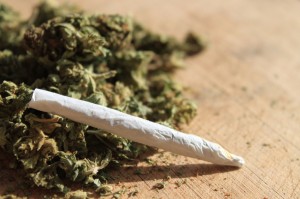Recent Cannabis Use Linked to Greater Symptoms of Anxiety and Mood Disorders and Less Response to Treatment
 In a 2018 systematic literature review published in the Journal of Clinical Psychiatry, researcher George Mamman and colleagues reported that across 12 studies of people with anxiety and mood disorders, participants who had used cannabis in the previous six months had more symptoms than those who had used less cannabis or no cannabis during that period.
In a 2018 systematic literature review published in the Journal of Clinical Psychiatry, researcher George Mamman and colleagues reported that across 12 studies of people with anxiety and mood disorders, participants who had used cannabis in the previous six months had more symptoms than those who had used less cannabis or no cannabis during that period.
The 12 studies reviewed included a total of 11,959 participants. Four studies looked at post-traumatic stress disorder (PTSD), one at panic disorder, five at bipolar disorder, and 2 at depressive disorder. In addition to finding that recent cannabis use was associated with greater symptoms, the authors of the review also found that in 10 of the 12 studies, recent cannabis use was associated with less symptom improvement in response to treatment for bipolar disorder, depression, and PTSD; including both medication and psychotherapy.
In bipolar disorder, cannabis use was associated with greater symptom severity. Cannabis use for more than one year was linked to more recurrences of mania and shortened time to a recurrence. Compared to participants with no prior use of cannabis, those with a cannabis use disorder had more depressive symptoms, including sleep troubles and loss of interest in activities one had previously enjoyed.
In PTSD, any cannabis use at the beginning of the analysis period and sustained use of cannabis over time were both linked to greater symptom severity in the four months following the beginning of the analysis.
Mammen and colleagues cautioned that these results are limited based on the differences in measurements across the 12 studies, the inpatient populations under study, and the uncontrolled nature of the cannabis the participants accessed on their own time. However, the authors suggest that the findings may inform patients’ and doctors’ conversations about whether or not to use cannabis.
Substance Use Among Canadian Adolescents with Bipolar Disorder: The Critical Need for Intervention and Prevention
At the 2012 meeting of the American Academy of Child and Adolescent Psychiatry (AACAP), Antoinette Scavone presented a poster on correlates of substance use disorders among Canadian adolescents with bipolar disorder. Participants were 62 adolescents aged 14 to 19 with bipolar disorder. Twenty-three participants (37.1%) had a substance abuse disorder.
Those with a comorbid substance use disorder were more likely to have a comorbid panic disorder or an oppositional defiant disorder. They also had higher rates of police contact or arrest, were more likely to have been involved in assault, and were more impulsive. In addition they had experienced more stressful life events.
Editor’s Note: These data from a Canadian sample replicate previous findings in the US and again indicate the critical importance of preventing the onset of substance abuse in adolescents at especially high risk because of their bipolar disorder.


